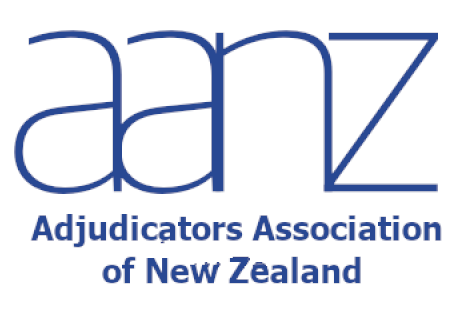
Hōtaka | Programme
Take a step back and reflect with us on the evolution of ADR over the past four decades and where we are heading. Here is what we’ll be covering across AMINZ Conference 2025.
Rāapa | Wednesday 27 August
The conference opens with the AMINZ AGM followed by a networking event, both held at the venue on Wednesday evening. A relaxed opportunity to reconnect, meet new people and set the tone for our next two days together.
Rāpare | Thursday 28 August
Our first day sets the stage for shared reflection, fresh insight, and future-focused conversation. We begin together, one room, one agenda, delving into the shifts and challenges shaping dispute resolution in Aotearoa and globally.
Across keynotes, panel discussions, and cross-disciplinary kōrero, we’ll consider how our profession has evolved, where it’s heading, and what that means for practitioners across all areas of ADR. Expect a day of bold questions, diverse viewpoints, and meaningful connections.
What to expect from Thursday’s sessions
9am Nau mai | Arrival and registration
Mihi whakatau | Welcome - read more about what to expect here.
7pm AMINZ Awards Dinner
-
Toby is setting out the political and cultural scene of 1985 in New Zealand.
"1985 was a whiplash year for New Zealand – David Lange letting rip at the Oxford Union, Roger Douglas turning up reform to 11 at home, state terrorism in the Auckland harbour, and countless other consequential and compelling moments across politics, culture and sport. I'm really looking forward to jumping in the time machine and travelling back four decades to a truly extraordinary year."
-
From paper files to e-briefs. From landlines to Zoom. From being ‘alternative’ to increasingly mainstream. Some things, however, have remained constant: The human need for dignity, fairness and resolution and the skill of the people who guide others through conflict. The Changing Face of Dispute Resolution explores the evolution of ADR from the 1980s to today, highlighting key shifts in technology, culture, client profiles and practice environments. Through a conversation bridging generations, attendees will gain insight into what has changed, what has stayed the same, and the implications for the future of ADR practice. The session fits within the broader conference theme of adapting to global challenges and embracing modernity while respecting tradition, truly embodying Ka mua, ka muri: walking backwards into the future.
-
This session explore tikanga Māori and other indigenous approaches to dispute resolution, highlighting practices that emphasise connection, harmony and collective wellbeing.
The panel will look at how disputes have traditionally been managed within iwi, hapū and other cultural communities, drawing on principles such as whakapapa, kōrero and collective responsibility. They will discuss how these practices build connection, maintain harmony and support the wellbeing of the community, and how they are increasingly informing formal dispute resolution process in Aotearoa New Zealand.
-
Is AI revolutionising or undermining dispute resolution? In a debate-style session, speakers will debate both sides of the AI equation.
Efficiency vs. ethics: can AI ever be neutral?
Will human judgment become obsolete?
Can AI build trust, or erode it?
Innovation and inequality: who gets left behind?
Tech fatigue vs tech enablement in ADR.
-
In an era marked by global uncertainty, robust and adaptable dispute resolution frameworks are more important than ever. As we walk backwards into the future, this panel reflects on how international courts, tribunals and dispute resolution mechanisms are evolving in response to new geopolitical and systemic challenges.
The discussion will highlight New Zealand’s engagement with the international legal system, drawing on recent cases to explore the domestic relevance of these global shifts. For AMINZ members across all practice areas, this session offers valuable insights into how past developments continue to shape the future of dispute resolution both locally and globally.

AMINZ Awards Dinner
Held onsite at Peppers Clearwater Resort, the dinner brings delegates, speakers, and distinguished guests together for an evening that honours excellence, contribution, and leadership across our sector. Enjoy a beautiful meal, networking and the presentation of the 2025 AMINZ Awards.
Whether you’re reconnecting with colleagues or making new connections, it’s an unmissable night of recognition and celebration.
Rāmere | Friday 29 August
On day two, we move into focused streams that reflect on the diverse and evolving landscape of ADR. Choose your stream and engage in conversations that matter most to your practice and passions.
With sessions exploring property and environmental issues, cultural and psychological dimensions of conflict, and the implications of rapid technological change, this is a day for digging deeper.
-
How does the brain respond under pressure - and how does this affect the way we behave in conflict settings? This session unpacks key neuroscience concepts, explores the impact of bias and inclusion on fairness and party experience, and offers practical insights for creating safety in diverse and neurodiverse dispute resolution spaces.
How our brains work; reaction versus response, fight/flight mechanisms in conflict and how we (often erroneously) assess threat.
Why innate bias and blind spots matter in conflict resolution.
Understanding neurodiversity and how to cater for it in conflict resolution.
Looking back to move forward: how the evolution of diversity and inclusion shapes our lives and practice in ADR settings.
-
In this session, Mark Kelly will discuss the past successes of mediation in Aotearoa New Zealand and the value it continues to deliver today. He will explore how mediators, and AMINZ, can best position mediation for greater recognition, and opportunities in the future. Rebecca Saunders will focus on the increasing use of arbitration and adjudication as an alternative to the courts, the important role that mediation plays as part of the determinative process, and the impact of technology and increasing diversity in the legal profession on determinative processes.
-
Lydia is the AMINZ Determinative Scholar for 2025. In this presentation, she considers recent New Zealand case law on anti-suit injunctions sought in support of a contractual dispute resolution clause or arbitration agreement. While these remain a controversial remedy, she argues that they can be a useful tool in cross-border disputes. English jurisprudence offers a sizable body of relevant case law, and the New Zealand cases (while rare) typically conform with the English approach. This presentation discusses the current approach to contractual anti-suit injunctions and considers the future of this remedy in New Zealand.
-
Think settlement tax issues end at 'plus GST if any'? Think again. Join Celia as she covers when GST applies, the tax trap that catches experienced lawyers off-guard, and key drafting decisions around payment structure and characterisation that could save your clients thousands.
-
“Where we’re going, we don’t need roads”
Join Young AMINZ Co-Chairs Cate Hensen and Isabelle Kwek for a roundtable discussion on topics that are inspiring the next generation of dispute resolution professionals. We will tackle questions such as:
What role can New Zealand play in shaping the future of dispute resolution globally?
What aspects of dispute resolution are outdated?
Is it time we try a different approach to interest-based negotiation?
How can we harness AI to enhance the ADR process?
The invitation is open to all conference attendees, whether or not you are a member of Young AMINZ. We invite everyone to engage with, share insights and encourage those who will shape the future of arbitration and mediation in New Zealand.
-
AI is moving fast. But practical adoption is what matters. This session focuses on what works today for dispute resolution professionals across Aotearoa. Chaired by Michael Heron KC and presented by Andrew Weirda and Oscar McGuire and special guest Pauline Courtney, the panel will:
Unpack where AI has been and where it’s heading.
Clarify where privacy and security sit with today’s tools.
Demystify what current AI can and can’t do well.
Explore new mediation and arbitration workflows that are possible today.
Consider what AI means for the future of ADR.
And answer audience questions live.
Participants will leave with practical knowledge on how to apply and optimise AI usage in their daily work.
Suitable for all levels. No prior technical knowledge is required.
-
ESG (Environmental, Social and Governance) Disputes are increasingly showing up as commercial disputes in the courts and in ADR. These disputes often include a public interest element – e.g. in New Zealand, the Court of Appeal’s decision on BNZ’s termination of banking services for the Gloriavale community, climate-related litigation, or an arbitration between energy sector players over entitlement to gas supply in Methanex v Nova.
Offshore, a third of international arbitrations are encountering public interest issues according to the latest international surveys.
We’ll be exploring:
What role does the Arbitrator have when deciding ESG disputes?
What expertise and knowledge should the Arbitrator be permitted to draw on when balancing public/private issues within commercial disputes?
Will this change as climate-related mitigation and adaptation disputes increase?
Is the Arbitrator confined to considering the commercial issues between the parties or do they have a responsibility to consider the impact of their decisions on the wider community (local, national and global).
Does this support, or undermine, arbitration’s role in supporting the rule of law?
-
More info to come!
What to expect from Friday’s sessions
Thank you to our Platinum and Supporting Partners
Conference Countdown






